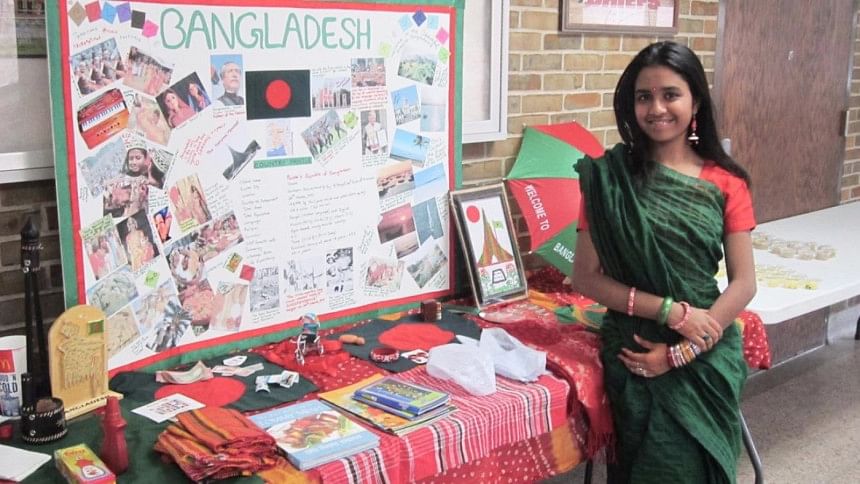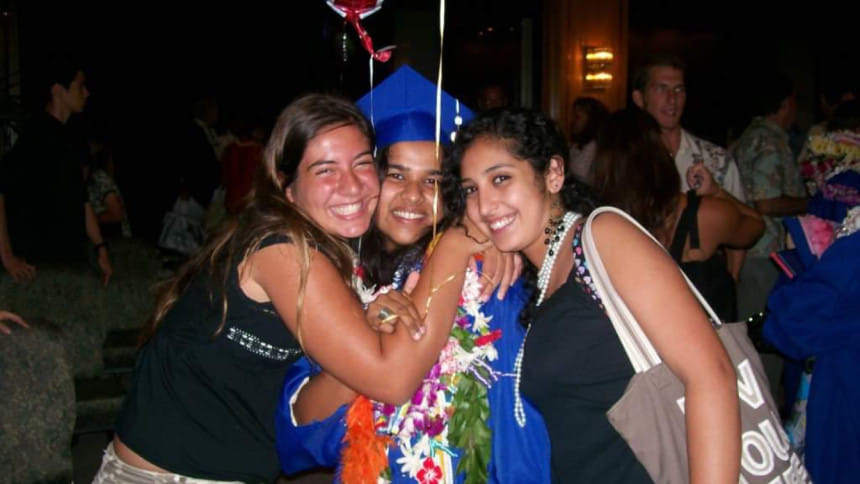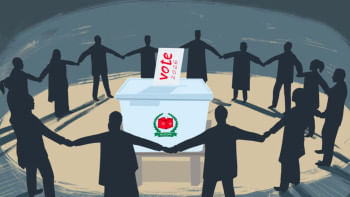Applying for the K-L YES Program

The Kennedy-Lugar Youth Exchange and Study (K-L YES) Program is a high school student exchange programme for youths between ages 15 and 17. During the programme, they live with American host families, study in a US high school and participate in various social activities for an academic year.
The programme aims at promoting mutual understanding and cultural exchange. It also stimulates leadership skills for students of both nations. It reached Bangladesh in 2004 under the management of the non-profitable organisation known as International Education and Resource Network - Bangladesh (iEARN-BD), alongside support from the US Embassy, Bangladesh. The online application process for next year's K-L YES Program is open till November 15, 2020. Interested candidates can apply at https://iearnbd.org/apply/.
Sameirah Nasrin Ahsan is a mechanical engineer who participated in the K-L YES Program in 2006-2007, funded by the Department of State's Bureau of Educational and Cultural Affairs, United States of America. After she completed the 12th grade in Hawaii, she went on to pursue her Bachelor's in Mechanical Engineering at Boston University, Massachusetts.
Sameirah has worked in different sectors. She was a fire safety engineer at the Bangladesh Accord Foundation. Prior to that, she was a HVAC and Fire Safety Consultant in Mechanical Enterprises Inc, a company based in Hawaii, USA. She currently works as a freelance consultant and is involved in various initiatives by the K-L Yes Program.

"I thought I would not be able to do it, but my mother was extremely adamant about it," Sameirah shares. "She wanted me to overcome my fears and become my own person." She participated in the K-L YES Program at the age of 16. Collecting a form via her school Onnesha International School and College, she applied for the programme and was selected.
Throughout the application process, Sameirah had to provide details about extracurricular activities, especially her involvement in debate and theatre, alongside her academic achievements in the application form. She also had to write an essay about herself, and she chose to write about her future goals.
The interview process for Sameirah took place in two stages. During the first stage, she was asked to participate in a group with four other probable candidates.
There was no personal interaction with any particular interviewee but she had to interact with her peers and converse with them on different topics like the cultural differences between America and Bangladesh.
In the second phase, she had to face a panel of three professors, one Bangladeshi and two Americans, during which she was asked about her education and background.
She was also asked questions like what would she do if she gets bullied in school and how would she respond to disagreements with her host parents. "However, the interview process and questions vary from time to time," she asserts.
Sameirah was placed in Hawaii with a family of two people. She lived with her host mother, whom she calls 'Grandma Vicky' and her granddaughter, Nicole. Upon arrival, Sameirah went through a rough patch trying to adjust with the cultural differences and social etiquettes. The home atmosphere, the American high school and the blunt carefree culture was totally new to her. However, Grandma Vicky was always at her rescue.
In Bangladesh, it is common to have a formal relationship with the teachers but that was not what she saw in Hawaii. "I attended the Le Jardin Academy and on my first day, I discovered how the students were very friendly and acted casually inside the classroom," she mentions. "My Bangladeshi teachers were amazing, but from a cultural viewpoint, there was always a wall of formality between us," she says.
The scenario was different in her host home too, where everyone was supposed to participate in household chores. "Fixed roles like only adults would cook or mothers would occupy the kitchen did not exist there," she adds.
Sameirah also made many friends in the US. "After my graduation from Boston, I went back to Hawaii and lived with Grandma Vicky while I was working at a private company there," she mentions. "It felt like I had a second home and a second family there."
During her stay in the US, her study costs were provided by the government while the host family took care of her housing and food.
In turn, the exchange students were required to join in social and community services. They are placed under different organisations and need to work for approximately 40 hours per year.
"I spent a lot of hours at Therapeutic Horsemanship of Hawaii, where I volunteered, and I still miss those days," she says. For her, the working environment was amazing as they used to work with retired horses. "The retired horses were used to help differently abled children with their motor and communication skills and social interactions," she says.
On the other hand, her time in the Windward Spouse Abuse Shelter was another notable experience, where she worked closely with victims of domestic violence. "My time there opened my eyes to mental healthcare," she smiles. "I got a letter of recognition for my services there."
Sameirah still actively participates in initiatives by the K-L YES programmes. She has visited various events as a guest speaker in the US to share her experiences. She has also worked closely with the Bangladeshi venture, which conducts the selection interviews. Furthermore, she is a resource person for the pre-departure orientation sessions.
In order to be selected for this programme, good grades are the key, she mentioned. "Basic English proficiency alongside the eagerness to embrace and adapt to new challenges can prove to be assets for students who are interested to apply," she says.
"The K-L YES Program has taught me three core values: tolerance, respect and empathy," she says. "In ten months, I was a completely different person. The experience really boosted my self-confidence and made me better in a lot of ways."
Shomy Hasan Chowdhury, a K-L YES alumna, is the co-founder of global youth-led organisation Awareness 360. The award-winning Water, Sanitation and Hygiene (WASH) activist is also a Global Citizen Youth Advocate and the Asia Representative of the Commonwealth Students' Association. She is recognised as a Global Changemakers Fellow, a Royal Commonwealth Society Fellow, a certified Commonwealth Leader and an International Election Observer. She has also received the President's Volunteer Service Award (Gold) from President Barack Obama and the 2019 Princess Diana Legacy Award. Recently, she was titled as a UNDP-Samsung Generation17 Young Leader, becoming the first person to hold the recognition from the Asia Pacific.
Shomy was a K-L YES scholar during the 2011-2012 academic year. She attended Cheboygan Area High School and was hosted by a family, the Reinhouts. "They helped me settle into the American culture and accepted me as their own daughter. They were always eager to learn more about Bangladesh and I have built a lifelong relationship with them," she adds.
She started community service under her school projects when she was only 13. "Volunteering is seen as one of the main components of the programme and starting at a young age has taught me to empathise with other communities," she says. Through community service, she developed several skills in project management, communication and leadership.
During her exchange year, she helped in organising a Thanksgiving dinner for pregnant teens and a Halloween party for children with disabilities. She participated in various recycling projects and trail clean-ups and was an active member of her high school clubs. She had also volunteered for garage sales and did community service for a local church, where she spent time with the children, while their parents attended the prayers.
Apart from academic lessons, the schools nurture young individuals to become future leaders, Shomy mentioned."We were taught parenting using dolls and made songs using Mathematics formulae," she says.
The programme also involves an International Education Week, where the exchange students give presentations on their countries.
She wrote a letter to her host family as a part of the application process. The letter had a short introduction of who she was, and details about her daily routine, family, values, and how she was planning to share her culture with them.
After returning from the YES Program, Shomy joined the YES Alumni Bangladesh Association. The alumni community, iEARN-BD and the American Center Dhaka act as a support system for the returnees and help them transition back to Bangladesh. In 2012, Shomy was elected as an Executive Committee Member of the association. She utilised the skills gained in the US in conducting various service projects in the country. In 2014, she was selected as an Alumni Instructor for the YES Arrival Orientation of the new scholars held in Washington DC. She was also invited as a keynote speaker to the iEARN conference, organised by iEARN-USA at Virginia, US, in 2018.
Overall, the K-L YES Program earned both these students great opportunities to be youth ambassadors for their country in the US, and learn about global affairs.

 For all latest news, follow The Daily Star's Google News channel.
For all latest news, follow The Daily Star's Google News channel. 



Comments